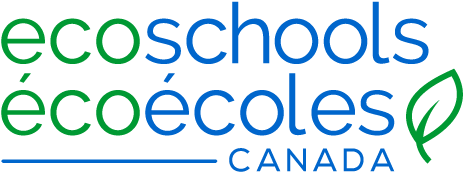As part of our Climate Leadership Contest, we invited schools to share how they took climate action during COP 22 (November 7-18, 2016) for the chance to be entered into a $500 prize draw from Cascades. This winter, we will be sharing our winning schools’ stories
Here is how St. Paul Catholic Elementary School in PVNCCDSB took action to reduce waste in their school community at meal-times. Responses are based on a condensed interview with the St. Paul EcoTeam.
What was the action you chose and how does it relate to climate change?
The action we chose was our grade 1/2 EcoTeam members brought litterless lunches (meaning lunches that have zero landfill-bound waste, which includes plastic wrappers, tin foil, etc.). Regular litterless lunches relate to climate change because the garbage that we are keeping out of the landfill helps keep our Earth green and prevents CO2 from entering the atmosphere. Our whole school participates in a litterless lunch program.
How did the action impact your school community and EcoTeam habits?
Every Friday, we have a litterless lunch draw. Three students are drawn and receive a prize for participating by bringing a litterless lunch to school. The amount of garbage our school throws out has continued to decrease each year. When we started the program, we used two big dumpsters and now we only need one.
Does your school have any other climate actions planned for this year?
At our school, we have an Energy Hog which monitors every classroom’s lights and monitor usage. If the Energy Hog shows up in a classroom, it serves as a reminder to students and teachers to turn off their lights, Smartboards, and monitors to save unnecessary energy use. We also have consistently used recycling and composting programs to keep garbage out of landfill. In our school yard, we have a forest space, an outdoor classroom and different gardens. The outdoor classroom serves as a place for students to learn surrounded by nature.
Our tips: Reduce waste at meal-times
For elementary schools, Energy Hogs and litterless lunch monitors are a good way to encourage students to take part in school-wide efforts to reduce energy and waste. For secondary schools, EcoTeams can lead campaigns to promote environmentally-friendly behaviours around lunch hour. For example, if there is a cafeteria at school, students can work with staff to come up with locally-as-possible sourced options that have a low carbon footprint and minimal packaging – and that are healthier than standard cafeteria fare!
- For full requirements of Environmental Stewardship, please review the 2016-17 Certification Guide.
- Use the Climate Change and Food section of our Climate Leadership Toolkit for ideas on how to engage your whole school community in food-related actions. From local recipe day to vegetarian/vegan potlucks, there are plenty of ways to reduce our carbon footprints as we prepare nutritious and delicious food.
- Build your local food literacy at one of Sustain Ontario’s free webinars. The next one is on March 22 from 3:30 – 4:30 pm EDT.

Recent Comments